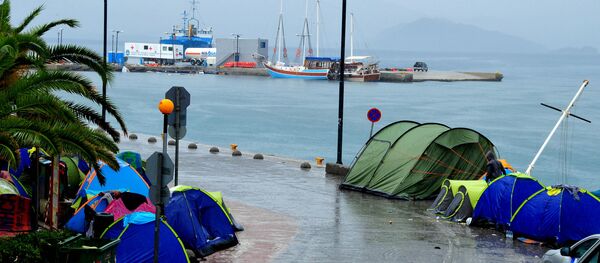The news comes a week ahead of an ultimatum to Greece that — if it does not get on top of the crisis — it will be thrown out of the Schengen zone. Greece — together with Italy — bore the brunt of the huge influx of refugees this year as asylum seekers fled war zones in Syria, Iraq, Afghanistan and Libya.
The Schengen area is a central pillar of the European Union, allowing for the establishment of a borderless Europe, where 26 countries have abolished passport and other border controls. However, the outer ring of the Schengen zone has been found wanting, with hundreds of thousands of people crossing into Schengen unchecked.
"I've addressed a letter to each Interior Minister with a clear & strong message" @Avramopoulos #RefugeeCrisis #EUCO https://t.co/qKMBZe0E4O
— European Commission (@EU_Commission) February 10, 2016
The sheer volume of refugees crossing into Turkey and following the so-called West Balkans route has put intense pressure on many countries in Europe, leading to some countries — including Croatia, Slovenia, Denmark, Hungary, Germany, Austria and Italy — re-establishing border control, which they are allowed to do only for a maximum of six months.
The six-month deadline will arrive in mid-May and the European Commission is paving the way for EU leaders, on February 18/19 at their summit, to suspend the Schengen rules for up to two years while the crisis is resolved.
Migration Commissioner Dimitris Avramopoulos told reporters: "We need urgently to shift gears."
"While the number of migrants arriving to Europe remains high, we need to step-up the implementation of the agreed European response that strikes the balance between responsibility and solidarity," he said in a statement.
"It must be clear for people arriving in the Union that if they need protection they will receive it, but it is not up to them to decide where; and if they do not qualify for protection, they will be returned. To better manage the flow of migrants and secure European borders, all Member States shall deliver on their commitments, strictly apply the European rules on asylum and border control and provide the necessary support to those Member States that are the most exposed," he said.




